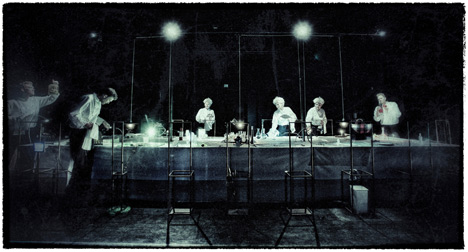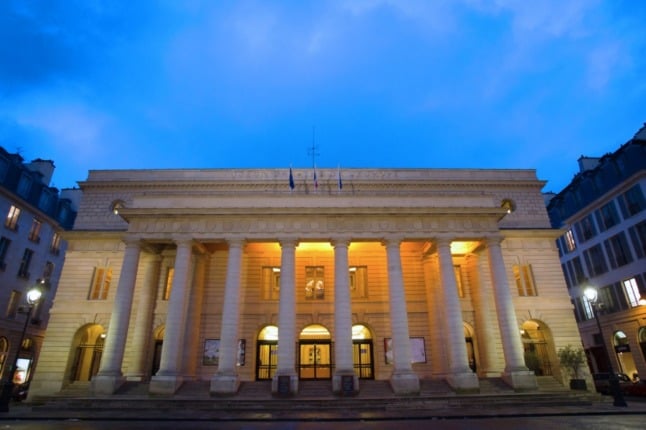
CANADA
Danish culture for English speakers
Aarhus – the city that changed its name to a more English-friendly spelling and adopted an English-language slogan – is now offering cultural performances in English.
Published: 23 August 2014 08:15 CEST

The first English-language performance is on Monday with Hans Christian, You Must be an Angel. Photo: Morten Fauerby
It’s no secret that it is sometimes difficult to be an expat. It can be hard to know what’s going on in the local community and a language barrier can eliminate a lot of entertainment options.
In Aarhus, Denmark’s second largest city, a theatre company has decided that they might be able to help with that last problem.
As somethingbrand new, Teatret Gruppe 38 is offering local performances in English as a way to give Aarhus's international community a chance to experience Danish culture in a language they understand.
The company’s first local English-language performance will be on Monday when it performs Hans Christian, You Must Be an Angel, a play that builds upon the work of Denmark’s most well-known cultural son, Hans Christian Andersen.
Bodil Alling (pictured), the theatre’s artistic director and the play’s lead actress, told The Local that the theatre has been doing English translations abroad for years until it finally dawned on her that it was “totally stupid” to not also offer an English performance in Aarhus.
“We travel a lot outside of Denmark, so we already had to make an English translation. We decided that it was crazy not to offer it to the English speakers here in Aarhus. There are so many international people living here who can’t go to performances because they can’t understand it,” Alling said.
She said the choice to start off with a play about Hans Christian Andersen was intentional.
“In a way it is a very Danish performance because it is based on his work, so this gives the audience the option of seeing a performance that is actually Danish in a cultural sense but performed in English. I think that will give the city's internationals a very unique experience,” she said.
Teatret Gruppe 38 has the full support of International Community, an Aarhus network dedicated to supporting international employees and their families.
“It’s really positive to see that Teatret Gruppe 38 and other cultural institutions are aware of the many internationals who live in Aarhus and offer events targeted at them,” International Community spokesman Jesper Theil told The Local.
“Many companies need to hire international employees to be able to compete and it’s important that they and their families have something to do in their spare time in order for them to stay,” he added.
Aarhus has shown a real understanding of the need to appeal to an international audience in recent years, even going so far as to change its official spelling from Århus to Aarhus and adopting an English-language slogan: “Aarhus. Danish for progress.”
Alling said she hoped that her theatre company’s English-language offerings will spur an interest in catering to the city’s international residents.
“I hope more cultural institutions will follow our lead and that this can turn into something special in Aarhus. One of the other theatre companies here has gotten excited about it and is now planning something in English,” she said.
In addition to Monday’s performance of Hans Christian, You Must Be an Angel, Teatret Gruppe 38 will also do an English-language performance of Andersen’s The Little Match Girl on December 16th and its February 15th performance of Hen & SHEep will also be in English.
Alling said she can’t wait to see how the performances are received by Aarhus’s international community.
“I’m excited to see if people will really show up or if it is just something that is a good idea in my head,” she said.
From the looks of it, it's not just in her head. Monday’s performance is nearly sold out, she said.
Url copied to clipboard!


 Please whitelist us to continue reading.
Please whitelist us to continue reading.
Member comments